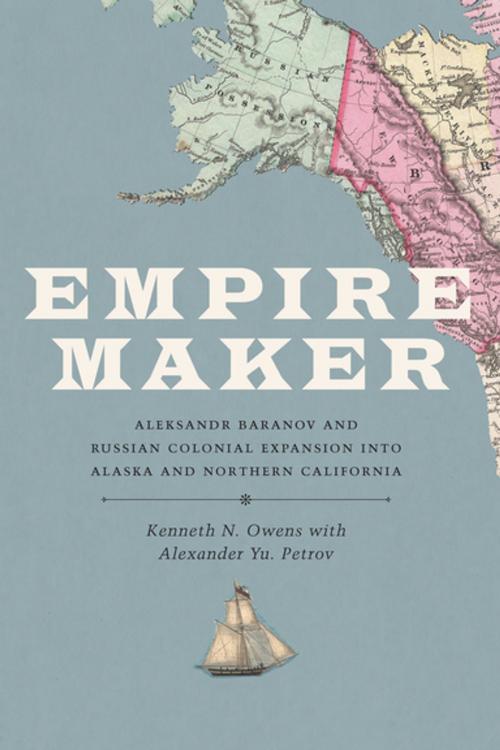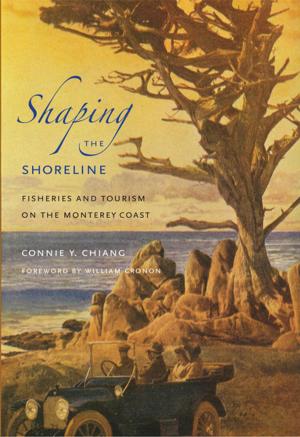Empire Maker
Aleksandr Baranov and Russian Colonial Expansion into Alaska and Northern California
Nonfiction, History, Americas, United States, Biography & Memoir| Author: | Kenneth N. Owens | ISBN: | 9780295805832 |
| Publisher: | University of Washington Press | Publication: | April 5, 2016 |
| Imprint: | University of Washington Press | Language: | English |
| Author: | Kenneth N. Owens |
| ISBN: | 9780295805832 |
| Publisher: | University of Washington Press |
| Publication: | April 5, 2016 |
| Imprint: | University of Washington Press |
| Language: | English |
A native of northern Russia, Alexander Baranov was a middle-aged merchant trader with no prior experience in the fur trade when, in 1790, he arrived in North America to assume command over Russia’s highly profitable sea otter business. With the title of chief manager, he strengthened his leadership role after the formation of the Russian American Company in 1799. An adventuresome, dynamic, and charismatic leader, he proved to be something of a commercial genius in Alaska, making huge profits for company partners and shareholders in Irkutsk and St. Petersburg while receiving scandalously little support from the homeland.
Baranov receives long overdue attention in Kenneth Owens’s Empire Maker, the first scholarly biography of Russian America’s virtual imperial viceroy. His eventful life included shipwrecks, battles with Native forces, clashes with rival traders and Russian Orthodox missionaries, and an enduring marriage to a Kodiak Alutiiq woman with whom he had two children. In the process, the book reveals maritime Alaska and northern California during the Baranov era as fascinating cultural borderlands, where Russian, English, Spanish, and New England Yankee traders and indigenous peoples formed complex commercial, political, and domestic relationships that continue to influence these regions today.
A native of northern Russia, Alexander Baranov was a middle-aged merchant trader with no prior experience in the fur trade when, in 1790, he arrived in North America to assume command over Russia’s highly profitable sea otter business. With the title of chief manager, he strengthened his leadership role after the formation of the Russian American Company in 1799. An adventuresome, dynamic, and charismatic leader, he proved to be something of a commercial genius in Alaska, making huge profits for company partners and shareholders in Irkutsk and St. Petersburg while receiving scandalously little support from the homeland.
Baranov receives long overdue attention in Kenneth Owens’s Empire Maker, the first scholarly biography of Russian America’s virtual imperial viceroy. His eventful life included shipwrecks, battles with Native forces, clashes with rival traders and Russian Orthodox missionaries, and an enduring marriage to a Kodiak Alutiiq woman with whom he had two children. In the process, the book reveals maritime Alaska and northern California during the Baranov era as fascinating cultural borderlands, where Russian, English, Spanish, and New England Yankee traders and indigenous peoples formed complex commercial, political, and domestic relationships that continue to influence these regions today.















